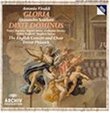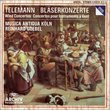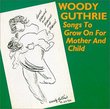| All Artists: John Eliot Gardiner, Monteverdi Choir, English Bar Title: Schutz: Musikalische Exequien (Motetten Und Konzerte/Motets & Concertos) Members Wishing: 0 Total Copies: 0 Label: Polygram Int'l Original Release Date: 1/1/1988 Re-Release Date: 12/26/2005 Album Type: Import Genre: Classical Styles: Historical Periods, Classical (c.1770-1830) Number of Discs: 1 SwapaCD Credits: 1 UPC: 028942340527 |
Search - John Eliot Gardiner, Monteverdi Choir, English Bar :: Schutz: Musikalische Exequien (Motetten Und Konzerte/Motets & Concertos)
 | John Eliot Gardiner, Monteverdi Choir, English Bar Schutz: Musikalische Exequien (Motetten Und Konzerte/Motets & Concertos) Genre: Classical
|
CD DetailsSimilar CDs
Similarly Requested CDs |
CD ReviewsRadiant Caterina Sforza | Brooklyn, NY | 02/27/2005 (5 out of 5 stars) "Doesn't look promising, does it? Early German Baroque, a meditation on death, mostly a capella, some continuo. Pretty austere. But this is some of the most passionate religious music ever composed, prompted by some of the most richly consoling texts-- In his German Requiem, 200 years later, Brahms paid tribute to Schütz's work in setting "Selig sind die Toten (Blessed are the dead") Schütz never lets limited resources limit his invention or blunt his emotion-- this is a perfect coexistence of restrained dignity and an almost ecstatic spirituality. His magic includes divided choirs crying "Erbarm' dich!" --have mercy-- back and forth, unexpected hemiola dance rhythms (in a Requiem!) and a Monteverdian drama blended into a wholly a capella, polyphonic texure, with the two "angels" and the "blessed Soul" contrasting with the choir in the "Canticum Simeonis." Gardiner and company are the perfect agents of Schütz's grace-- Gardiner is probably the greatest exponent of the "Get out of the way of the music" school of HIP, and that just happens to be the one I favor. Clarity is what the music needs, and what it gets. Gardiner also has never found a Baroque piece out of which he couldn't ferret the dance rhythms. His singers are clear-voiced, articulation is clean, tuning and balance flawless, tempi strict, rhythms meticulous-- and the result is not at all cold, but full of light and warmth. The emotions rise out of the music and overtake you." An unending source of pleasure and spiritual renewal. RENS | Dover, NH USA | 09/09/2005 (5 out of 5 stars) "As a music historian and a German scholar as well as a pastor, I concur with the other reviewers: this is a magnificent recording of first-rate performances of significant compositions by Heinrich Schuetz. For the sake of your health and well-being, for the joy of your heart, get this CD and listen to it often!" One of the best recordings of Schütz I've heard Steven Guy | Croydon, South Australia | 11/06/2003 (5 out of 5 stars) "This recording isn't new but it is still extremely good. The Requiem is sung and played with great feeling and style. There are other good recordings of this work, but this one is still out in front.The four motets on this recording are stunning. Ist nicht Ephraim and Auf dem Gebirge are both performed with great pathos and feeling. The musicians from His Majestys Sagbuts & Cornetts play with great feeling and surround the voices in a beautiful and 'sacred' way. This is how the music of Heinrich Schütz should be performed!"
|

 Track Listings (7) - Disc #1
Track Listings (7) - Disc #1





![Seussical [2000 Original Broadway Cast]](https://nationalbookswap.com/cd//m/02/4802/514802.jpg)